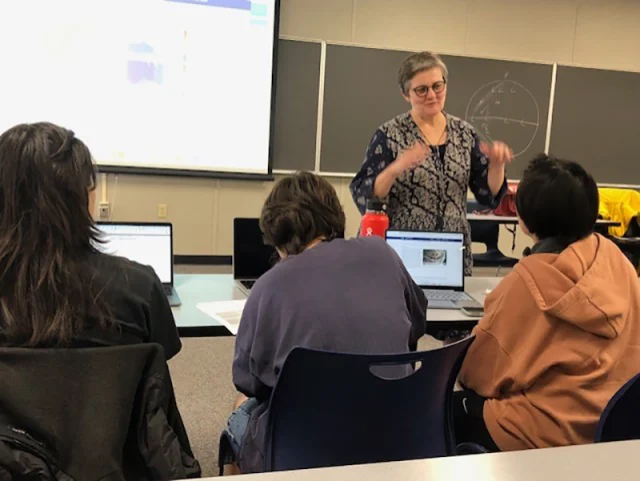Posts Tagged ‘Discourse’
Communicating with Colleagues Teaching with OOI Data
The Ocean Observatories Initiative (OOI) and the OOI Ocean Data Labs are serious collaborators. While two different NSF-funded initiatives share portions of their names, their roles are different, but complementary. The OOI provides data that the OOI Ocean Data Labs Project uses to prepare instructional materials for undergraduate classrooms. It’s a collaboration that helps to expand the use of OOI data into classrooms and into the hands of potential future researchers.
To honor this collaboration, the OOI has launched a new Discourse forum “OOI in the Classroom“ where educators can share their experiences teaching with OOI data and establish dialogues with their colleagues. This forum is designed to offer an online area to share ideas, tell tales, and work to develop supportive, instructive, and challenging classroom experiences.
The OOI Ocean Data Labs also hosted an in-person workshop at the recent Ocean Sciences Meeting to introduce faculty to the community-developed collection of OOI Data Explorations and the online OOI Lab Manual. The workshop invited participants to integrate OOI data into undergraduate courses (Greengrove et al., 2020), to not only teach concepts in oceanography but to build transferable skills.
The Ocean Data Labs is holding a workshop (June 2-5, 2024 at the Marine Science Center, University of North Carolina Wilmington) that will focus on the relocation of the Pioneer Array to the Mid-Atlantic Bight, and the potential this move will provide for future educational lessons and student research activities. Learn more and apply to attend. Participants will be selected and notified by mid-April.
Another way to get involved is to join the Ocean Data Labs mailing list to learn of the latest innovations and lesson plans developed by this network of educators. Also, be sure to sign on to Discourse to continue the ongoing conversation within the education network of OOI data users.
Read MoreHelpDesk Moves to Discourse
Questions submitted to OOI’s HelpDesk will now be shared and answered on OOI’s community forum on Discourse. This move was initiated in January 2021 as a way to make such queries more transparent, with the hope that the answers would help inform the broader OOI community and possibly initiate a dialogue among OOI data users themselves.
“HelpDesk questions range in complexity, depending upon the experience of OOI data users. By posting basic questions about accessing data to detailed queries about particular data, we hope to provide a resource for users at all experience levels,” said Jeff Glatstein, Senior Manager of Cyberinfrastructure and OOI Data Delivery Lead. Members of the OOI Data Team, comprised of representatives from all of the OOI arrays, answer questions relevant to data collected by the arrays. The platform offers the team a way to quickly engage with questioners and vice versa.
The team expects that some of the questions submitted will spark discussion amongst the data users themselves. “Having the questions presented on an open forum like Discourse provides an opportunity for OOI data users to share their knowledge and lend insight into specific data-related questions,” added Glatstein.
In addition to the HelpDesk, Discourse contains an FAQ section, and discussion sections for sharing of data tools, innovations, and findings, known data issues, and other areas where users’ exchange of information can be helpful. The implementation of Discourse was recommended by the OOI Facility Board as a means to encourage exchange between members of the OOI community. OOI’s forum is modeled after the Pangeo Discourse, which is a successful community of scientists and software developers working together to improve scientific research.
All OOI data users and potential OOI data users are encouraged to try out, then bookmark, Discourse. By sharing knowledge, questions and answers, OOI can join the ranks of helping to advance scientific research through engaged dialogue and collaboration. See you online!
Read More


